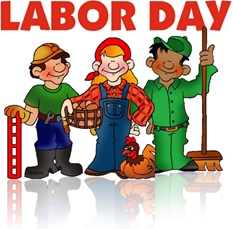There was a girl whose
father was very jealous. Even so she had a boyfriend who loved her. He wanted
to write her about love. To avoid problems with her father he created a new
kind of letter. He wrote:
“The great love I had
for you
Is gone, and my hate
for you
increases every day.
When I see you
I feel bad and
displeased.
The only thing I want
to do is to
Look the other way. I
never wanted to
Marry you. I have a
heart
To give, but it is not
a heart
I want to give you. Do
me a favor and
Do not try to
I don’t need you. Good
bye! Believe me,
I am still your love.”
The girl soon
understood that she had to read the first line of the letter, and then the
third line, and then the fifth line, and so on, until the end of the letter.
(Adapted from The love
letter, published by The MacMillan Company)
Vocabulary
Whose – cujo
Very – muito
Jealous – ciumento
Even so – mesmo assim
About – sobre
To write – escrever
To want – querer
To avoid – evitar
Created – criou
New – novo
Kind – tipo
Letter – carta
Wrote – escreveu
ACTIVITY
1. Copie algumas palavras cognatas.
2. A partir das palavras cognatas, qual a
ideia geral do texto?
3. Que tipos de texto são apresentados?
4. Quem escreveu a carta? Para quem?
5. Para que a carta seja entendida, como deve
ser lida? Por quê?
è Questões pessoais:
a. Você já enviou alguma carta “enigmática”
para alguém?
b. Como era ela?
c. Como ela compreendeu que o rapaz
ainda a amava?
P.S. Recebi por e-mail, mas perdi as referências.
Interpretação de texto em inglês -
Leia os textos em seguida responda as questões
abaixo:
AIR POLLUTION
One of
the formal definitions of air pollution is as follows – ‘The presence in the
atmosphere of one or more contaminants in such quality and for such duration as
is injurious, or tends to be injurious, to human health or welfare, animal or
plant life.’ It is the contamination of air by the discharge of harmful
substances. Air pollution can cause health problems and it can also damage the
environment and property. It has caused thinning of the protective ozone layer
of the atmosphere, which is leading to climate change.
Modernization
and progress have led to air getting more and more polluted over the years.
Industries, vehicles, increase in the population, and urbanization are some of
the major factors responsible for air pollution. The following industries are
among those that emit a great deal of pollutants into the air: thermal power
plants, cement, steel, refineries, petro chemicals, and mines.
Air
pollution results from a variety of causes, not all of which are within human
control. Dust storms in desert areas and smoke from forest fires and grass
fires contribute to chemical and particulate pollution of the air. The source
of pollution may be in one country but the impact of pollution may be felt
elsewhere. The discovery of pesticides in Antarctica, where they have never
been used, suggests the extent to which aerial transport can carry pollutants
from one place to another. Probably the most important natural source of air
pollution is volcanic activity, which at times pours great amounts of ash and
toxic fumes into the atmosphere.
Listed
below are the major air pollutants and their sources.
Carbon
monoxide (CO)is a colourless, odourless gas that is produced by the incomplete
burning of carbon-based fuels including petrol, diesel, and wood. It is also
produced from the combustion of natural and synthetic products such as
cigarettes. It lowers the amount of oxygen that enters our blood . It can slow
our reflexes and make us confused and sleepy.
Carbon
dioxide (CO2)is the principle greenhouse gas emitted as a result of human activities
such as the burning of coal, oil, and natural gases.
Chloroflorocarbons
(CFC) are gases that are released mainly from air-conditioning systems and
refrigeration. When released into the air, CFCs rise to the stratosphere, where
they come in contact with few other gases, which lead to a reduction of the
ozone layer that protects the earth from the harmful ultraviolet rays of the
sun.
Lead is
present in petrol, diesel, lead batteries, paints, hair dye products, etc. Lead
affects children in particular. It can cause nervous system damage and
digestive problems and, in some cases, cause cancer.
Ozone occurs
naturally in the upper layers of the atmosphere. This important gas shields the
earth from the harmful ultraviolet rays of the sun. However, at the ground
level, it is a pollutant with highly toxic effects. Vehicles and industries are
the major source of ground-level ozone emissions. Ozone makes our eyes itch,
burn, and water. It lowers our resistance to colds and pneumonia.
Nitrogen
oxide (Nox) causes smog and acid rain. It is produced from burning fuels including
petrol, diesel, and coal. Nitrogen oxides can make children susceptible to
respiratory diseases in winters.
Questions:
01. De acordo com o contexto, indique o significado
que mais apropriado para a palavra destacada a seguir:
Air
pollution can cause health problems and it can also damage the
environment and property.
a. ( ) Beneficiar
b. ( ) Contribuir
c. ( ) Prejudicar
d. ( ) Melhorar
e. ( ) Preservar
02- Segundo
o texto, Qual das situações abaixo foi citada no texto sobre o monóxido de
carbono?
a. ( ) Afeta o sistema
nervoso
b. ( ) Prejudica o sistema
respiratório
c. ( ) Provoca câncer
d. ( ) Desregula o sistema
hormonal
e. ( ) Diminui a quantidade
de oxigênio do sangue
03- Segundo o contexto, a melhor interpretação para
“Carbon dioxide” é:
a. ( ) Gás natural
b. ( ) Fumaça proveniente
de queimadas
c. ( ) Poluição industrial
d. ( ) Gás carbônico
e. ( ) Gás emitido por
veículos automotores
Global Warming
Global
warming is the increase in the average
temperature of the Earth's near-surface air and oceans in
recent decades and its projected continuation.
04- De acordo com o
contexto, indique o significado que mais apropriado para a palavra
destacada na frase a seguir:
a. ( )
Debatem
b. ( )
Rejeitam
c. ( )
Discordam
d. ( )
Definem
e. ( )
Discutem
05 - Leia as afirmações
abaixo e assinale a alternativa correta:
I- Toda a comunidade cientifica concorda com o
relatório apresentado.
II- Pelo menos 30 comunidades científicas chegaram
a essas conclusões.
III- Todos os chefes de estado assinaram o acordo,
para reduzir os efeitos do aquecimento global.
IV- As variações de temperatura de região para
região no futuro ainda é uma incerteza.
a. ( ) Somente II está
correta.
b. ( ) II e IV estão
corretas.
c. ( ) III e IV estão
corretas.
d. ( ) I e III estão
corretas
e. ( ) Todas estão
corretas.
Questões
|
Alternativa Correta
|
01
|
C
|
02
|
E
|
03
|
D
|
04
|
C
|
05
|
B
|



